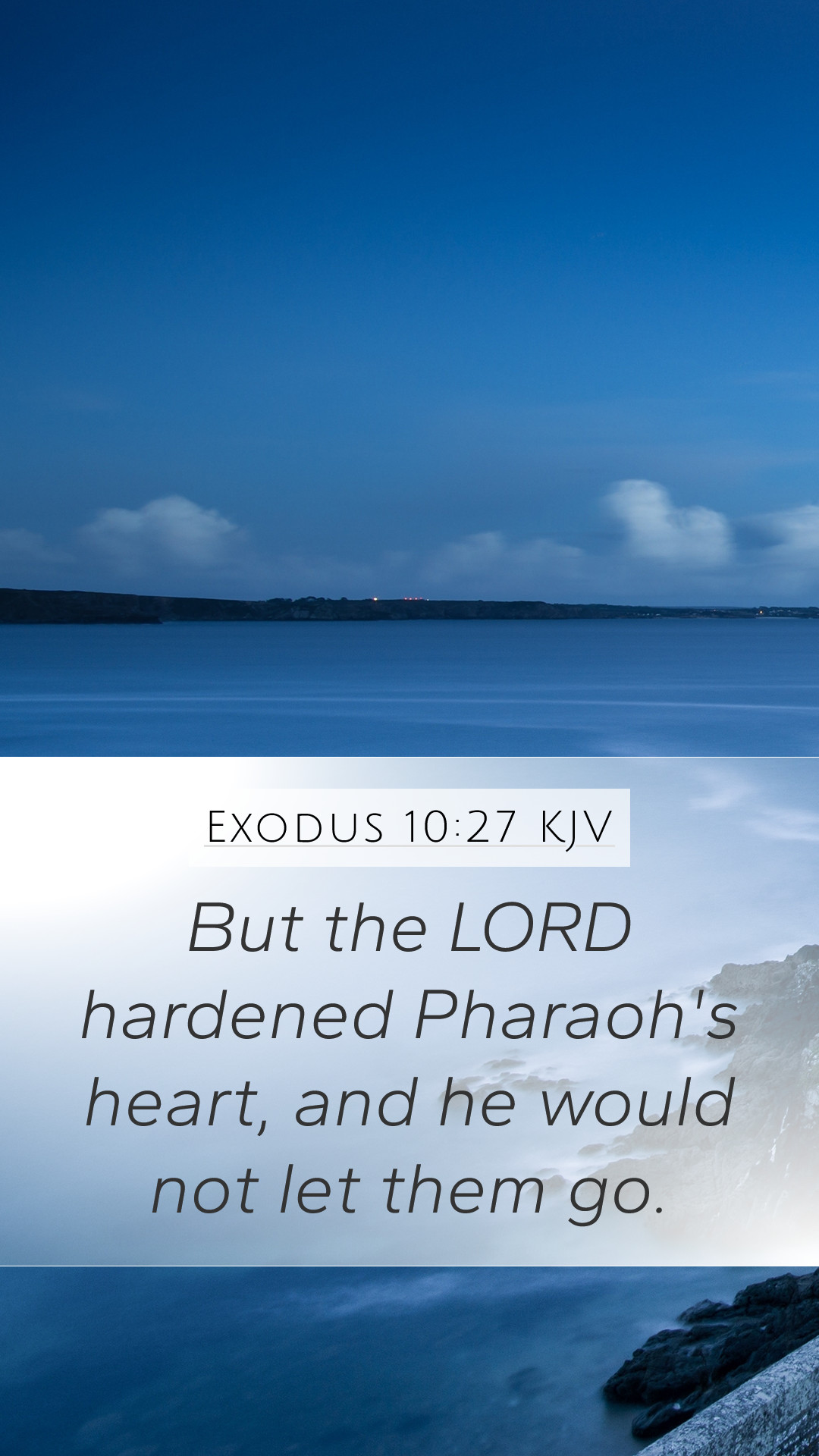Bible Verse Interpretation: Exodus 10:27
Verse Context: Exodus 10:27 states, "But the LORD hardened Pharaoh's heart, and he would not let them go." This verse is significant within the narrative of Moses’ confrontation with Pharaoh during the plagues of Egypt. Here, it is crucial to understand the implications of God's action in hardening Pharaoh's heart.
Meaning of the Verse
This verse emphasizes the divine sovereignty of God in the unfolding events of the Exodus. The hardening of Pharaoh's heart serves as a critical theme throughout these chapters, illustrating the interplay between human free will and divine intervention.
Insights from Public Domain Commentaries
-
Matthew Henry:
Henry points out that God's hardening of Pharaoh's heart was a judgment on the king's persistent obstinacy. He notes that it illustrates how a person's continued rebellion against God can lead to a state where they are further inclined to sin. Henry suggests that God's action was not merely punitive but also served to accomplish His greater purpose of revealing His power to both Egypt and Israel.
-
Albert Barnes:
Barnes elaborates on the theological implications of God hardening Pharaoh's heart. He states that this action was indicative of God's control over human affairs, where Pharaoh’s initial resistance was seen as a prelude to divine signs and wonders. Barnes argues that Pharaoh's refusal to free the Israelites ultimately led to the fulfillment of prophecy and served as a testimony of God's might.
-
Adam Clarke:
Clarke interprets the hardening as an act that demonstrates the seriousness of Pharaoh's decisions. He emphasizes that God’s hardening acts did not negate Pharaoh's free will; instead, it reflects how God can use even a hardened heart for His purposes. Clarke ties this interpretation to a broader understanding of divine justice and mercy, noting that God’s dealings with mankind are often multifaceted and beyond human comprehension.
Application for Believers
The implications of Exodus 10:27 extend beyond mere historical account to practical applications for faith in the modern world. Believers are encouraged to reflect on the state of their hearts and the potential for hardening through persistent sin or rebellion against God's will.
Key Takeaways:
- Divine Sovereignty: Recognizing that God is in control even when circumstances seem dire.
- Response to God's Call: Understanding the importance of responding positively to God's guidance and not allowing pride or stubbornness to lead us astray.
- Encouragement in Obedience: Finding motivation in the narratives of Exodus to remain steadfast in faith, trusting that God’s plans will unfold according to His will.
Bible Cross References
- Romans 9:17-18: Reflects on God raising Pharaoh for the purpose of demonstrating His power.
- Exodus 7:3: God's declaration that He would harden Pharaoh's heart as part of the plagues narrative.
- Hebrews 3:15: Warns against hardening one’s heart in rebellion to God.
Conclusion
Exodus 10:27 serves as a powerful reminder of the dynamics of divine sovereignty and human choice. For those engaged in Bible study, this verse invites a deeper look into the complexities of God's engagement with humanity. Through understanding this scripture, believers are equipped to explore further the nuances of Bible verse meanings and their applications in life.


